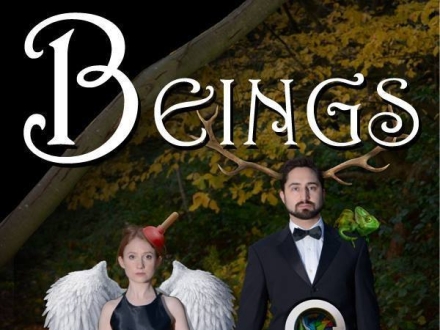Everybody has their improv story, how they found it, what they learned. This is a part of mine.
I became more confident in my creative process
When I started writing I would always be questioning what I wrote, worrying if I was going anywhere with a piece.
Doing hundreds of scenes and messing them up, sometimes finding gold, and watching others do the same made me less precious about the creative process. I don’t have to judge myself by every single line I write or every line I speak. I don’t have to judge myself by a scene that I do, or even a show. I get lost and find my way back into a scene.
I am learning. When I am creating something I am learning what it is as I create it, so its normal to question and doubt, they don’t have to be art destroying shadows. Getting better doesn’t mean being perfect, it means getting back on track faster. Or getting better means something else, it’s up to me what that means to me.
I saw that a mistake can be an opportunity
Sometimes in a scene an improviser makes a mistake and that turns into what the scene is about. I saw a great scene set in an office where a character was named Frank or Francine and it was hilarious seeing that inform the reality of the scene. Seeing one co-worker justify why they thought Francine looked like a Frank was funny, and could have happened in real-life.
Art reflects reality, and reality has mistakes.
I am learning to enjoy surprises more
I always had an idea of what a scene was about and got frustrated by people bringing in completely different ideas, but I did get that is the point. I want my fellow improvisers to surprise me.
This is still a learning point for me as I like to look ahead and know what is going on. But I am keeping alive the joy of surprises in my mind, and jumping on them more.

I found friends
I meet theatre-makers, clowns, circus artists, musicians, weirdos, accountants, teachers, and other sorts doing improv. Some of them are my friends.
Getting used to meeting new people and creating random scenes helped me socialise more. Having a conversation with a stranger is just not as taxing as pretending you are their brother and you are both carving a canoe.
I also like meeting people that I would never have met, except they turned up to the same improv class as me.
I work with others differently
After improvising a while it changed how I approach any kind of work with other people. First I try to understand where they are coming from, then work out where we agree. Before I saw it as win-lose, one person has an idea or opinion that will be the best and win out over the others. Now I can see that ideas are shaped by a group, whether you know it or not.
I think about what I want to say
Improv is fun, and its also treated as kind of disposable. You do a scene, its gone, be ready for the next one. I think that’s fine and partially true. But a show is still a show, you are getting up in front of people and presenting something. You have an opportunity to show whatever you want, your kind of comedy, your kind of drama, whatever you choose.
After a while of playing different characters you might find some of them boring, and get tired of playing certain scenes. It’s worth thinking about why that is and what you are looking to get out of making art.


